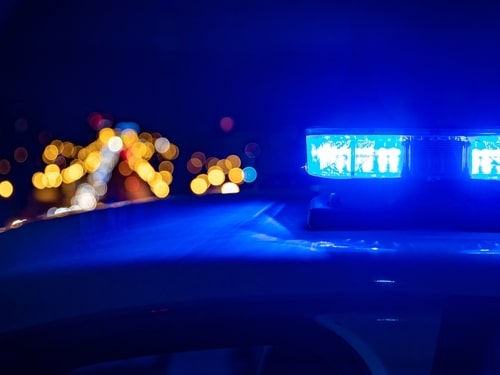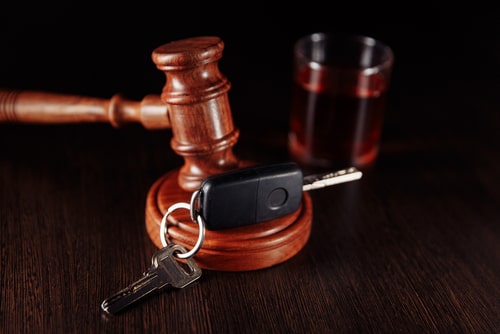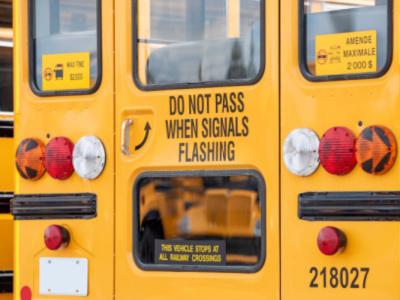Recent Blog Posts
Retail Theft Defense Strategies This Holiday Season
 The Christmas season is upon us, which means the hustle and bustle of holiday shopping can sometimes lead to misunderstandings or false accusations of retail theft. Suppose you have found yourself facing retail theft charges in Illinois during this festive time. In that case, it is crucial to implement an effective defense strategy in order to protect your rights and reputation. Contact a lawyer; they will have the legal knowledge and skills required to develop and implement a robust legal defense on your behalf.
The Christmas season is upon us, which means the hustle and bustle of holiday shopping can sometimes lead to misunderstandings or false accusations of retail theft. Suppose you have found yourself facing retail theft charges in Illinois during this festive time. In that case, it is crucial to implement an effective defense strategy in order to protect your rights and reputation. Contact a lawyer; they will have the legal knowledge and skills required to develop and implement a robust legal defense on your behalf.
Four Defense Strategies for Retail Theft Charges in Illinois
Work with your attorney to see whether any of these defense strategies are worth implementing in your case, including:
What Do Drug Manufacturing Charges Entail in Illinois?
 Drug manufacturing charges are serious offenses that carry severe penalties in the state of Illinois. Many people have a general idea of what illegal drug manufacturing is through movies and other forms of media, but what do such charges actually entail? If you are facing drug manufacturing charges, you are implored to seek legal help right away. Without the guidance of a lawyer, you are opening yourself up to making your legal problems even worse.
Drug manufacturing charges are serious offenses that carry severe penalties in the state of Illinois. Many people have a general idea of what illegal drug manufacturing is through movies and other forms of media, but what do such charges actually entail? If you are facing drug manufacturing charges, you are implored to seek legal help right away. Without the guidance of a lawyer, you are opening yourself up to making your legal problems even worse.
Legal Definition of Drug Manufacturing
Drug manufacturing refers to the process of producing, cultivating, or synthesizing controlled substances, such as meth, cocaine, heroin, or LSD, with the intention of distributing or selling them. This can involve operations such as meth labs, growing cannabis plants, or setting up undercover laboratories to produce illegal drugs.
DuPage County Prepares for Thanksgiving DUIs
 As Thanksgiving approaches and the rest of the holiday season, DuPage County, Illinois, like many other areas, prepares for an increase in DUI (Driving Under the Influence) incidents. Law enforcement agencies and local authorities are taking proactive measures to ensure road safety during this holiday season. If you are arrested for DUI, you are strongly advised to contact a criminal defense lawyer. While hiring a lawyer will not guarantee a positive end to your legal situation, it will give you a fair chance at pursuing a favorable conclusion to your current legal woes.
As Thanksgiving approaches and the rest of the holiday season, DuPage County, Illinois, like many other areas, prepares for an increase in DUI (Driving Under the Influence) incidents. Law enforcement agencies and local authorities are taking proactive measures to ensure road safety during this holiday season. If you are arrested for DUI, you are strongly advised to contact a criminal defense lawyer. While hiring a lawyer will not guarantee a positive end to your legal situation, it will give you a fair chance at pursuing a favorable conclusion to your current legal woes.
Holiday Season Means Increased Police Presence
DuPage County law enforcement agencies are increasing patrols and may implement sobriety checkpoints during the Thanksgiving holiday. The goal here is to deter impaired driving and catch those who are allegedly driving under the influence of alcohol or drugs. The heightened police presence serves as an important reminder to motorists to make responsible choices and avoid driving while impaired.
Do Drug Addicts Receive Automatic Jail Time After Being Arrested?
 When people struggling with drug addiction are arrested for a crime, many assume that automatic jail time is inevitable. Contrary to popular belief, this is not the case. The legal system recognizes the complexities of addiction and behavioral health, offering alternative options instead of incarceration. If you are facing drug charges and are suffering from a form of drug addiction, contact a lawyer to ensure you understand your rights. You may have access to alternative programs and treatment instead of serving time in jail.
When people struggling with drug addiction are arrested for a crime, many assume that automatic jail time is inevitable. Contrary to popular belief, this is not the case. The legal system recognizes the complexities of addiction and behavioral health, offering alternative options instead of incarceration. If you are facing drug charges and are suffering from a form of drug addiction, contact a lawyer to ensure you understand your rights. You may have access to alternative programs and treatment instead of serving time in jail.
Understanding the Link Between Drug Addiction and Criminal Behavior
Drug addiction often fuels criminal behavior, as individuals may resort to illegal activities to support their substance abuse. However, it is important to recognize that addiction is a disease that requires treatment rather than punishment. The legal system is increasingly acknowledging this connection and seeking alternative solutions that address the root causes of addiction rather than solely focusing on punishment.
Can You Get a Hangover DUI the Day After Drinking?
 Driving under the influence (DUI) is a serious offense as it can have serious consequences for both individuals and the community at large. In Illinois, DUI laws are stringent, and offenders can face harsh penalties. However, what many people may not realize is that even the morning after a night of heavy drinking, they may still be considered DUI offenders under certain circumstances. This is a phenomenon known as a “hangover DUI.” If you are facing charges related to a hangover DUI, a lawyer may be able to help.
Driving under the influence (DUI) is a serious offense as it can have serious consequences for both individuals and the community at large. In Illinois, DUI laws are stringent, and offenders can face harsh penalties. However, what many people may not realize is that even the morning after a night of heavy drinking, they may still be considered DUI offenders under certain circumstances. This is a phenomenon known as a “hangover DUI.” If you are facing charges related to a hangover DUI, a lawyer may be able to help.
Defining a Hangover DUI
Also known as a “morning-after DUI” or “next-day DUI,” it occurs when a person operates a vehicle with a blood alcohol concentration above the legal limit, typically 0.08 percent, even after the immediate effects of alcohol have worn off. In other words, if a person still has alcohol in their system from the previous night’s drinking, they can be charged with a hangover DUI.
Getting A Divorce During COVID-19 In Illinois
 If you’ve made the decision to move forward with a divorce, you’re not alone. Divorce rates have skyrocketed this year compared to years past, and many believe this spike is in part caused by additional stress fueled by the coronavirus pandemic. However, the pandemic is also affecting how the courts are handling divorce proceedings. In today’s blog, we take a closer look at how Illinois is handling divorces during the pandemic, and what you should do if you’re planning on moving forward with a divorce during these turbulent times.
If you’ve made the decision to move forward with a divorce, you’re not alone. Divorce rates have skyrocketed this year compared to years past, and many believe this spike is in part caused by additional stress fueled by the coronavirus pandemic. However, the pandemic is also affecting how the courts are handling divorce proceedings. In today’s blog, we take a closer look at how Illinois is handling divorces during the pandemic, and what you should do if you’re planning on moving forward with a divorce during these turbulent times.
Divorcing In Illinois Amid The Coronavirus
As we mentioned in the intro, we’re seeing a noticeable increase in the amount of divorce proceedings in Illinois and across the United States. Statistics show that the number of couples interested in a divorce between March and June increased 34 percent compared to the same time period in 2019. This may seem like a stark increase, but it’s not without reason. That time period is generally considered the first wave of the coronavirus pandemic.
How A Defense Lawyer Can Make All The Difference At Sentencing
 Not all guilty verdicts are the same. Despite the fact that you may be convicted of a crime, how you reach that point can have a big impact on the eventual sentence you’ll receive for that crime. And considering some of the potential sentences that misdemeanor and felony level offenses carry in Illinois, it’s important that you have a lawyer by your side who can help with all aspects of your case, including sentencing.
Not all guilty verdicts are the same. Despite the fact that you may be convicted of a crime, how you reach that point can have a big impact on the eventual sentence you’ll receive for that crime. And considering some of the potential sentences that misdemeanor and felony level offenses carry in Illinois, it’s important that you have a lawyer by your side who can help with all aspects of your case, including sentencing.
Factors That Go Into Sentencing
While the facts of the case will determine whether you’re found innocent or guilty, the culmination of how your case is presented will go a long way in determining your sentencing. Even at sentencing, a smart argument from a lawyer can greatly reduce the sentence you’ll receive. We always work hard to help our clients win a dismissal, but if they are found guilty, our job doesn’t stop there. Just look at some of these sentences we’re been able to help negotiate for our clients.
How A Lawyer Can Help Change Your Child Support Arrangement In Illinois
 Even in amicable divorces, establishing child custody arraignments can become complex and complicated in a hurry. There’s also the very real possibility that circumstances change that warrant an adjustment to a child custody agreement. But if you are dissatisfied with your current agreement, how can you go about changing the current order? We explain how you do this, and how a lawyer can help with the process in today’s blog.
Even in amicable divorces, establishing child custody arraignments can become complex and complicated in a hurry. There’s also the very real possibility that circumstances change that warrant an adjustment to a child custody agreement. But if you are dissatisfied with your current agreement, how can you go about changing the current order? We explain how you do this, and how a lawyer can help with the process in today’s blog.
Modifying Child Custody In Illinois
In a standard child custody case, Illinois requires that at least two years have passed since the original child custody agreement was signed. So if you’re three months into an arrangement and you’re frustrated with how it’s going, it’s unlikely that a court will modify the arraignment. There are circumstances where they will make changes before two years have passed, and we’ll touch on those below, but the goal of a child custody agreement is to foster stability in a child’s life, so changes within the first two years can prove difficult, especially if one party objects to the changes.
Concealed Carry Violation Penalties In Illinois
 The second amendment to the U.S. Constitution grants citizens the right to keep and bear arms, but that doesn’t mean you can carry a firearm anywhere you please in Illinois. There are permits and regulations that must be followed if you plan on carrying a concealed weapon, and the penalties for violating these laws can be severe. Below, we take a closer look at the laws and the penalties regarding concealed carry violations.
The second amendment to the U.S. Constitution grants citizens the right to keep and bear arms, but that doesn’t mean you can carry a firearm anywhere you please in Illinois. There are permits and regulations that must be followed if you plan on carrying a concealed weapon, and the penalties for violating these laws can be severe. Below, we take a closer look at the laws and the penalties regarding concealed carry violations.
Conceal Carry In Illinois
Before a person can apply for their concealed carry license, they must first obtain what’s known as a Firearm Owner’s Identification Card (FOID). The FOID is what allows you to purchase and possess a firearm in Illinois, and you do not need a concealed carry license in order to transport firearms as long as they are unloaded and in an enclosed case, like what many hunters do each fall. We have a more thorough explanation of FOIDs and how to obtain them in this blog.
Passing a School Bus Violation In Illinois
 School is back in session, and odds are you’ve seen those big yellow buses on your morning or afternoon commute. Buses are carrying some precious cargo, which is why Illinois penalizes drivers harshly for driving illegally around these vehicles. In fact, the state just recently increased the penalties for stop arm violations. Below, we take a closer look at how school bus stop arm violations are penalized in Illinois.
School is back in session, and odds are you’ve seen those big yellow buses on your morning or afternoon commute. Buses are carrying some precious cargo, which is why Illinois penalizes drivers harshly for driving illegally around these vehicles. In fact, the state just recently increased the penalties for stop arm violations. Below, we take a closer look at how school bus stop arm violations are penalized in Illinois.
What Is A Stop Arm Violation?
As the name implies, a stop arm violation is a citation for illegally passing a school bus that has its flashing warning lights and stop arm engaged. More specifically, it is illegal for a driver to pass a school bus with its lights and stop arm engaged while it is stopped to pick up or discharge passengers. It doesn’t matter if it’s in a roadway or parking lot, if you’re caught passing a stopped school bus with its lights on and arm engaged, expect to be ticketed.





